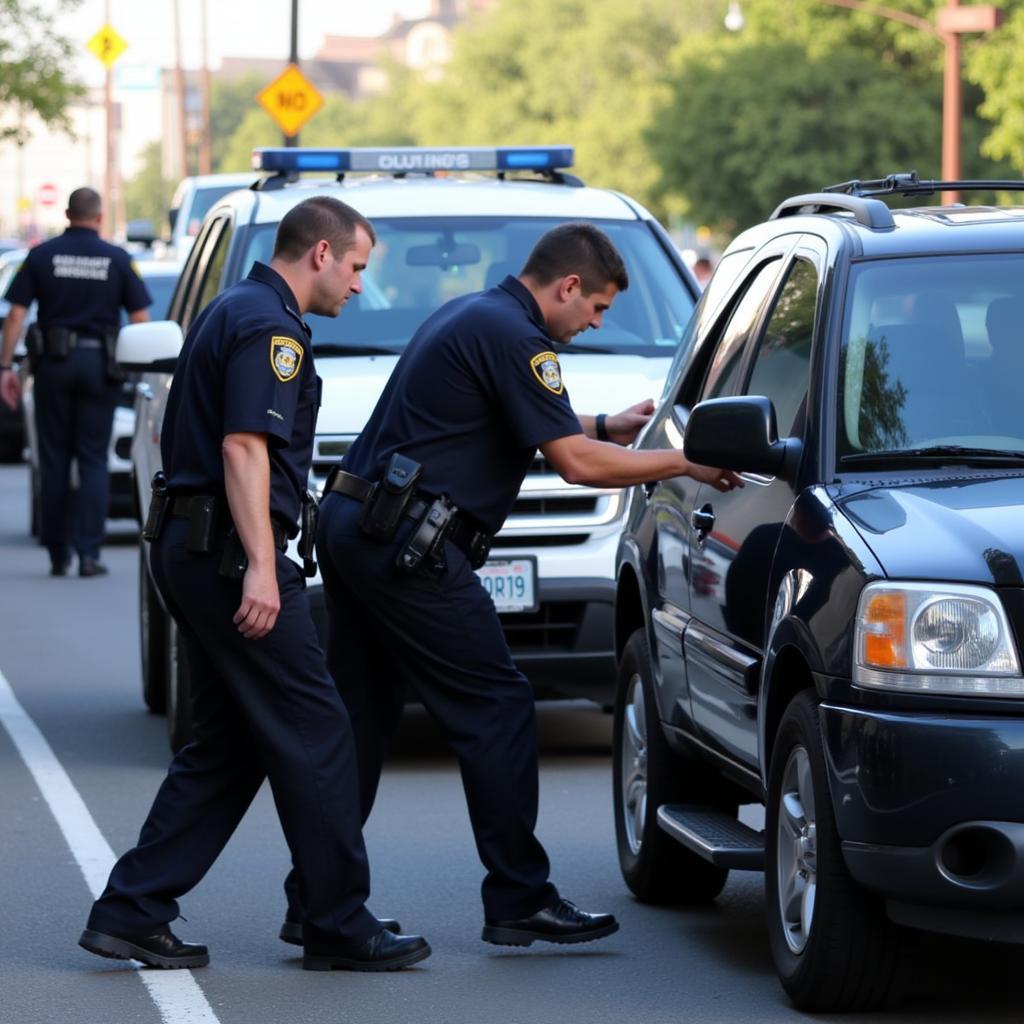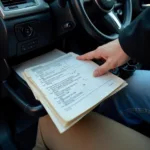Can the Secret Service search my car without a warrant? This is a critical question concerning your Fourth Amendment rights, and understanding the nuances of this issue can be crucial in various situations. We’ll delve into the complexities of this issue, exploring the legal precedents and exceptions that govern Secret Service searches.
When Can the Secret Service Search Your Car?
The Fourth Amendment protects you from unreasonable searches and seizures. Generally, this means law enforcement, including the Secret Service, needs a warrant based on probable cause to search your car. However, there are exceptions to this rule.
- Consent: If you voluntarily consent to a search, the Secret Service doesn’t need a warrant. It’s important to remember that you have the right to refuse a search. Don’t feel pressured to consent, and if you’re unsure, politely decline and ask to speak with an attorney.
- Incident to Arrest: If you’re being lawfully arrested, the Secret Service can search your car without a warrant if it’s within your immediate control. This is to prevent you from accessing weapons or destroying evidence.
- Plain View Doctrine: If illegal items or evidence are clearly visible from outside the car, the Secret Service can seize them and potentially search the vehicle further.
- Probable Cause with Exigent Circumstances: If the Secret Service has probable cause to believe your car contains evidence of a crime and there’s an urgent need to search, such as preventing the destruction of evidence or protecting public safety, they can search without a warrant. This often applies in situations involving immediate threats or time-sensitive evidence.
is secret service allowed to search your car
Understanding the Secret Service’s Protective Mandate
The Secret Service’s primary mission is to protect national leaders and their families. This mandate can influence their authority to conduct searches, particularly in situations where they perceive a threat to a protectee. The protective function often involves securing areas and screening individuals and vehicles, which can lead to searches under specific circumstances.
How Does Protective Function Affect Searches?
The protective function of the Secret Service can lead to searches in situations where a potential threat is perceived, often near locations where protectees are present. These searches can involve checkpoints and screening procedures, and they often require individuals to consent to searches of their vehicles.
 Secret Service Checkpoint Vehicle Search
Secret Service Checkpoint Vehicle Search
Your Rights During a Secret Service Search
Even in situations where the Secret Service doesn’t need a warrant, you still have rights. You have the right to remain silent, and you shouldn’t interfere with the search, but you should calmly and politely assert your rights.
- Ask for Identification: You have the right to ask for the agent’s identification and the reason for the search.
- Don’t Consent Under Duress: Never consent to a search because you feel intimidated or pressured.
- Contact an Attorney: If you believe your rights have been violated, contact an attorney as soon as possible.
“Knowing your rights during a Secret Service interaction is vital,” says attorney Sarah Miller, a specialist in constitutional law. “Understanding the exceptions to warrant requirements can help you navigate these situations while protecting your rights.”
What To Do If You Believe Your Rights Were Violated?
If you believe the Secret Service conducted an illegal search of your car, document the incident, including the date, time, location, agents involved, and what happened. Consult with an attorney to discuss your options and potential legal recourse.
is secret service allowed to search your car
Can the Secret Service Search My Phone?
Similar to vehicle searches, the Secret Service generally needs a warrant to search your phone. The same exceptions, such as consent, incident to arrest, and probable cause with exigent circumstances, can apply. However, the Supreme Court has affirmed the heightened privacy protections afforded to cell phones, making warrantless searches less likely.
“The legal landscape surrounding digital searches is constantly evolving,” says cybersecurity expert David Chen. “Individuals should be aware of their digital privacy rights and seek legal counsel if they believe those rights have been violated.”
Conclusion
Can the Secret Service search your car without a warrant? While the general rule requires a warrant, several exceptions exist. Understanding these exceptions and your rights during a Secret Service interaction is crucial for protecting yourself. If you are unsure about your rights or believe they have been violated, contacting an attorney is essential.
FAQ
- Do I have to consent to a Secret Service search of my car? No, you can refuse consent.
- What should I do if the Secret Service wants to search my car without a warrant? Ask for their identification, the reason for the search, and politely assert your rights.
- Can the Secret Service search my car if I’m near a protected person? Potentially, due to their protective mandate, especially if there is a perceived threat.
- Can I record a Secret Service search of my car? Laws vary by state, but generally, recording in public spaces is permissible.
- What should I do if I think the Secret Service violated my rights during a car search? Document the incident and contact an attorney.
- Can the Secret Service search my trunk? This depends on the circumstances and the reason for the search. Generally, a warrant or an exception to the warrant requirement would be needed.
- Does the Secret Service need a warrant to search my phone? Generally, yes, but exceptions similar to car searches apply.
Need assistance? Contact us via WhatsApp: +1(641)206-8880, Email: [email protected]. We have a 24/7 customer support team.

